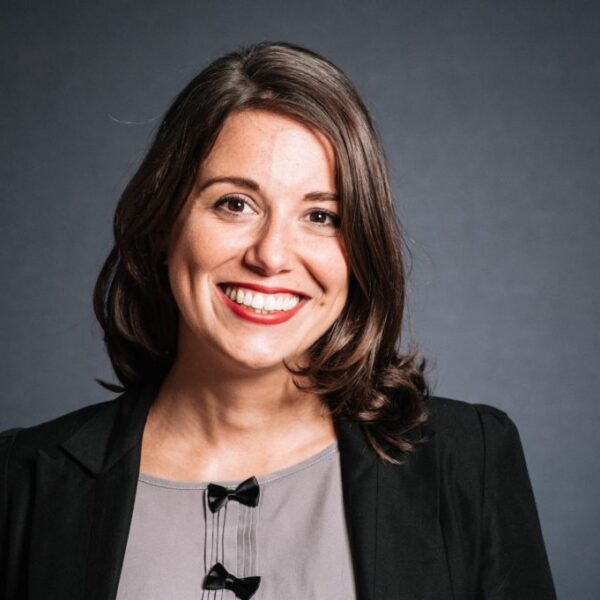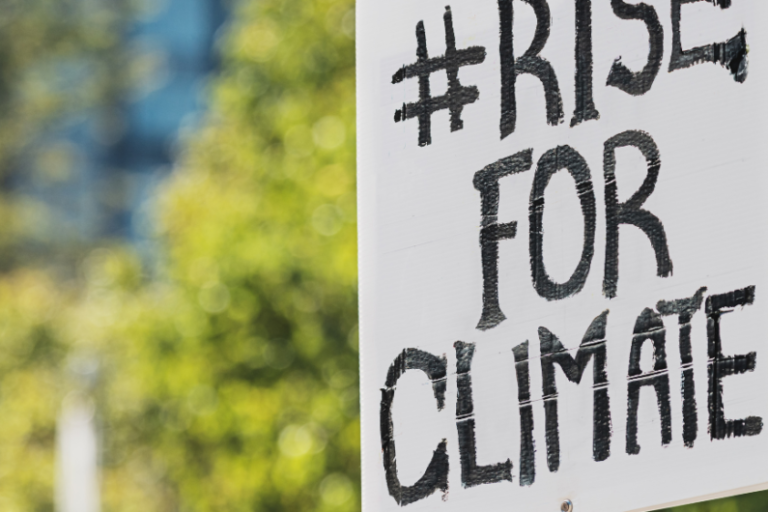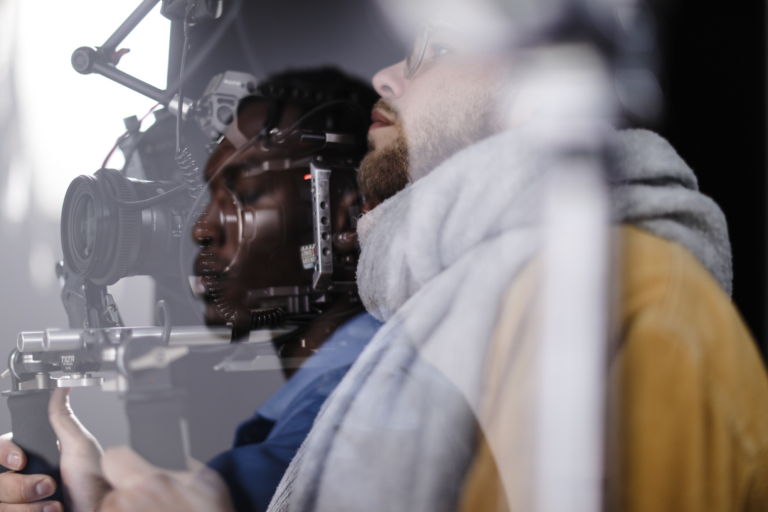Our Senior Project Manager Maria Skóra held a Keynote at the European Media Seminar. The seminar is organised by the multilingual online Magazine treffpunkteuropa.de, taurillon.org, thenewfederalist.eu together with JEF-Germany, JE-France and YEM UK.
The keynote
We perceive the Western world as a safe haven for democracy, tolerance, and freedom. In fact, from the global perspective, we enjoy one of the best living conditions and prosperity. According to the “Social Progress Index”, which collates the scores of three leading indicators of quality of life: basic human needs, foundations of wellbeing, and opportunity, out of ten best countries in the world, eight are located in Europe (Finland, Denmark, Switzerland, Sweden, Norway, the Netherlands, the UK, Iceland). Moreover, if thinking of life expectancy, it makes us privileged when compared to other parts of the world. Europeans live on average sixteen years longer than Africans. Last but not least, but for the Balkan war in the 1990s, Europe has managed to keep the peace for the last 70 years. For that reason, the EU was awarded the Nobel Peace Prize in 2012.
If we look how our world has changed long term, some positive tendencies are to be seen. Taking Germany as an example: 12 years of NS-regime that had taken over in the 1930s, brought persecution, deaths and war – the worst catastrophe of modern Europe. But by overcoming the guilt and trauma, Germany has become one of the most stable democracies in the world, one of the most innovative economies, and a multicultural and inclusive society. That tremendous change happened within the lifespan of our grandparents. Next, thinking of the USA: racial segregation – legally enforced physical separation of people of colour from white people in schools, hospitals, in public space was a fact there not so long ago. Only the Civil Rights Act of 1964 and civil rights movements of people of colour, women, LGBT challenged this status quo. Forty-five years later, in 2009 the first Afro-American was elected the 44th President of the United States. That tremendous change happened only within the lifespan of our parents. Finally: the fall of the Iron Curtain. After WWII Europe was divided: in the East citizens were caged inside closed borders, jailed or even killed for their political opinions, with no media freedom. Still in the 1980’s Eastern Europe was a gloomy, grey place. Today it’s open borders, open economies, freedom to make individual choices. That change happened only within my lifespan.
It all proves that humanity is capable of accomplishing great things, like empowerment and progress. But we often tend to forget that not only we should cherish our comfy lives but also fight for the future. We need to stay vigilant because prosperity is not given once for good. Bigger empires collapsed in the past. The diagnosis of today’s situation is not as optimistic as I’ve just pictured.
There are cracks forming under the surface
In Germany, the far-right has managed to win seats in the Bundestag. Their aggressive rhetoric, victim playing, manipulation and cynicism manifest, for example, in a harmful tactic of throwing chauvinist messages into the mainstream and withdrawing right after, denying control over what happens with what spreads on. In the United States, the last presidential campaign saw an unprecedented racist rhetoric, misogyny. There are growing racial tensions inside the country as well as the far right becomes more and more visible, openly waving swastikas on the streets. In Eastern Europe, the democratic carnival comes to an end. In Poland and Hungary state capture and manual override is to be seen. New governments try to petrify their power through dismantling checks and balances – fundamental institutions of a democratic state, like the judiciary or public media. At the same time, nationalist moods arise, which many times brought Europe to war.
As a result, questions emerge today: Are we reliving the 1930s? Is something terrible going to happen? I don’t think so. History does not repeat itself so easily. There will be no ethnic cleansings; there will be no war; there will be no dictatorships in Europe. But have we learned our lesson diligently from the past? Neither.
Some citizens feel alienated and not at home in their own countries. There are people with a migration background who are always asked where they are from, or even worse – who are judged by the way they look. Migration, if not tackled with effective integration tools, can be a significant factor affecting the life chances of children. Integration is a two-fold process, a feedback loop: it takes both sides to make an effort to adapt and accept: to fit in and allow to fit in. Does Islam belong to Germany? Do we need Leitkultur? Is burka the biggest integration problem? These issues are discussed very often by those who fear losing popularity to populists – or young politicians willing to be noticed. This is not the way how we should be talking about multiculturalism, migration, social cohesion. This is making political capital, not solving integration problems. It only proves we have not yet dealt with everyday racism in our world, unfortunately.
Wars in the world continue. Europe is a safe place, but there are proxy wars involving world superpowers elsewhere. Syria is the most prominent example of reinstalling a “Cold War” situation. The Syrian conflict has now been going on for longer than World War II. Wars hurt the civilians; wars destroy lives of people and their children. Next generations will be scarred for life by wars. The world is not a safe place. This brings fear of exporting unrest to other parts of the world, fear of the stranger at our door.
Illiberal regimes are emerging; new authoritarianism is at our doorstep: New – because it introduces its authoritarian rule by smooth and soft measures, legalising antidemocratic procedures; Authoritarianism – because it is based on centralisation of power and sanctioning the disobedience. Violating the rule of law manifests in bending the judiciary to political will, crushing down on civil society, tolerating corruption. It also targets media freedom. These terrible phenomena shocked us lately in Europe: in Malta, Panama Papers journalist, Daphne Caruana Galizia, was murdered; in Slovakia, investigative journalist Ján Kuciak and his fiancée, Martina Kušnírová were gunned down. So, are we as free as we think?
How have we gotten here?
Out of neglect or by mistake, we tend to commit four deadly sins to our democracies. The first sin is tolerating economic and social inequalities. Europe is an unfinished project of social and economic cohesion. There still is not enough level of social mobility, exacerbated by the global financial crisis. As a result, those in the bottom are prone to radical ideologies – no equal chances frustrate them and sometimes push them into radicalism. They also look for scapegoats not to be a scapegoat themselves, not to be the underdog. On the other end, inequalities make the wealthier fear for their wealth and take defensive positions that are prone to turn illiberal, intolerant. The second sin is tolerating hate and labelling respectful speech as “political correctness” or censorship. Next: tolerating ignorance. “Ignorance is strength” – that golden rule petrified the nightmarish dictatorship pictured in George Orwell’s book “1984”. It is partially true also in today’s world. We see many educated ignorants. Education is universally accessible, but it does not teach critical thinking anymore. Counterfactual debates are impossible to win as believing is not based on knowledge. As a result, anti-vaxxer movements or flat earth societies emerge in the 21st century. This brings us to the fourth and final sin: the degrading quality of public discourse. The technological revolution in communication influenced the media, journalism, politics, societies. The affluence of information makes it difficult to verify it. Too often low-quality writing wins with good journalism because of pursuing profit. Then, it combines with media illiteracy: fact-checking skills hardly exist among the general population. People are equipped with technology but not with skills how to use it wisely. The populists break the rules and manipulate – but one cannot fight them with their methods. There are no simple answers to very complex questions, but politics based on emotions keep people deluded. As a result, democracy is always one step behind its enemies.
What to do then?
There are no simple answers and easy solutions. However, as an individual, community member, citizen one can already make a difference in everyday life by responsive behaviours.
Have courage – React! There is nothing like political correctness – there is respect for others. Freedom of speech is not freedom to lie or offend others. Racism is not an opinion; it’s a crime. React if you see injustice.
Go vote! Keep politicians accountable. Vote to express your interests and will – with low turnout radicals have a chance to enter the mainstream even though they represent marginal circles. Then, keep the politicians accountable for what they do and promise – or what they don’t do and don’t say. Call them, write an email, tag them on Facebook, Twitter. Only this way one can bring back trust in politics.
Don’t be an egoist: think collectively, not individually, think of your community. Today you may be the majority, but your status can always change. Care for a solidary society where there is a place for everybody.
Make high-quality journalism. Claim responsibility for public discourse, take the educational role by awareness raising, fact-checking. Give people arguments, not tautologies, bother to explain complexity. Bring light into this complicated world we are living in.






